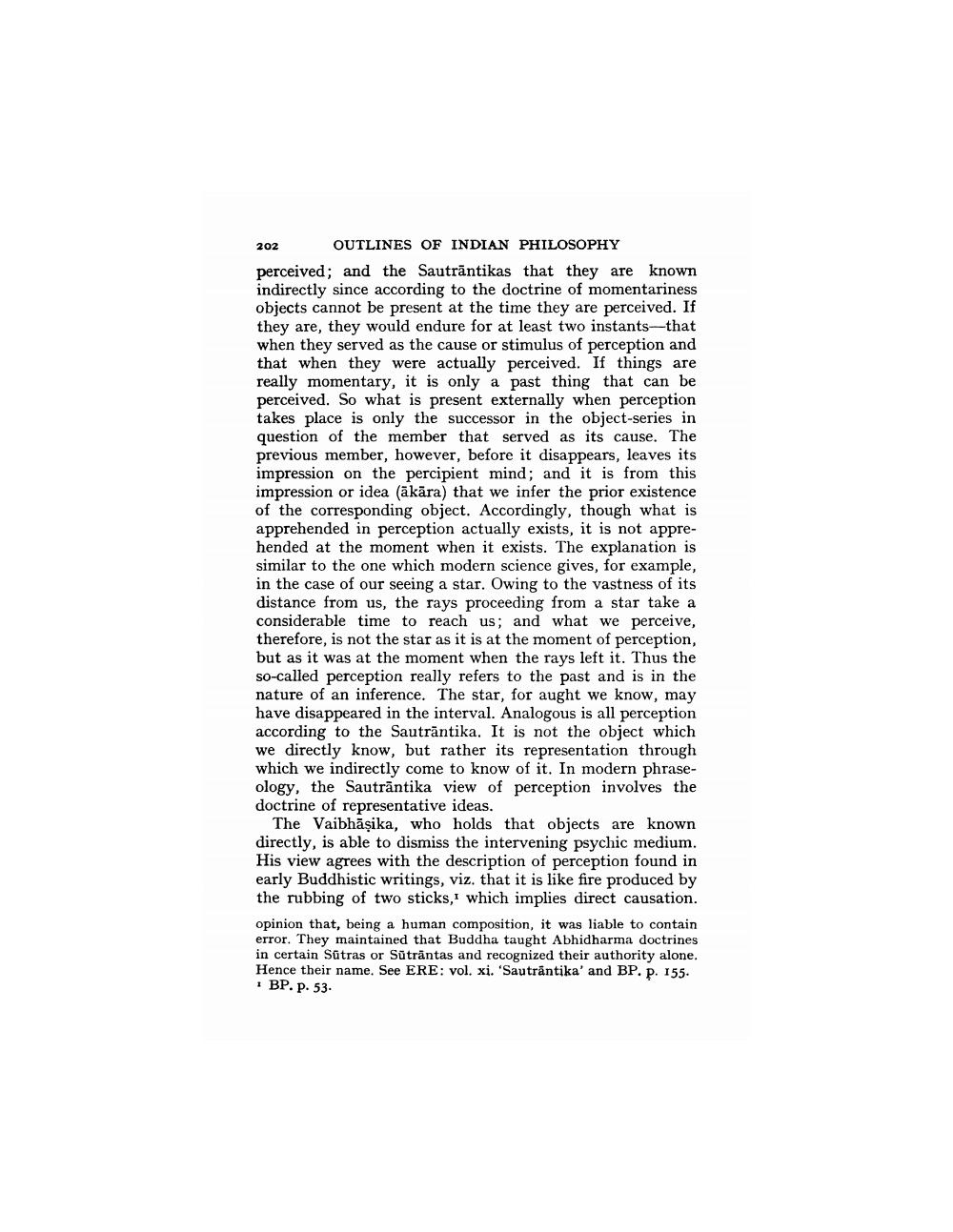________________
202 OUTLINES OF INDIAN PHILOSOPHY perceived; and the Sautrāntikas that they are known indirectly since according to the doctrine of momentariness objects cannot be present at the time they are perceived. If they are, they would endure for at least two instants-that when they served as the cause or stimulus of perception and that when they were actually perceived. If things are really momentary, it is only a past thing that can be perceived. So what is present externally when perception takes place is only the successor in the object-series in question of the member that served as its cause. The previous member, however, before it disappears, leaves its impression on the percipient mind; and it is from this impression or idea (ākāra) that we infer the prior existence of the corresponding object. Accordingly, though what is apprehended in perception actually exists, it is not apprehended at the moment when it exists. The explanation is similar to the one which modern science gives, for example, in the case of our seeing a star. Owing to the vastness of its distance from us, the rays proceeding from a star take a considerable time to reach us; and what we perceive, therefore, is not the star as it is at the moment of perception, but as it was at the moment when the rays left it. Thus the so-called perception really refers to the past and is in the nature of an inference. The star, for aught we know, may have disappeared in the interval. Analogous is all perception according to the Sautrāntika. It is not the object which we directly know, but rather its representation through which we indirectly come to know of it. In modern phraseology, the Sautrāntika view of perception involves the doctrine of representative ideas.
The Vaibhāşika, who holds that objects are known directly, is able to dismiss the intervening psychic medium His view agrees with the description of perception found in early Buddhistic writings, viz. that it is like fire produced by the rubbing of two sticks, which implies direct causation. opinion that, being a human composition, it was liable to contain error. They maintained that Buddha taught Abhidharma doctrines in certain Sätras or Sūtrāntas and recognized their authority alone. Hence their name. See ERE: vol. xi. 'Sautrántika' and BP. P. 155. 1 BP. P. 53




